Afeni Shakur was born Alice Faye Williams on January 10, 1947, in Lumberton, North Carolina, a prominent station in the timber industry along the Lumber River. The daughter of Rosa Belle, a homemaker, and Walter Williams, Jr., a trucker, Shakur and her sister, Gloria Jean, had a troubled childhood. “My momma left my dad because he was kickin’ her ass,” Shakur said in a 1997 interview in People magazine. In 1958 Shakur, her mother, and sister moved to New York City, where Shakur attended the Bronx High School of Science. A troubled child, Shakur reported later that she began using cocaine when she was about fifteen years old, and she struggled with drug addiction for most of her life.
Shakur joined the emerging Black Panther movement in 1964, after meeting an associate of Malcolm X who was recruiting among youth in the Bronx. Shakur told biographer Jasmine Guy, the Black Panthers “took my rage and channeled it. They educated my mind and gave me direction.” Shakur began writing articles for the party’s newsletter, the Panther Post, and was largely successful in crafting a misdirection campaign that led FBI agents to believe that the Panther Party was fading. In 1968 Shakur moved in with fellow Panther Lumumba Abdul Shakur and changed her name to Afeni Shakur.
Shakur and twenty fellow-Panthers were arrested on April 2, 1969, and charged with several counts of conspiracy to bomb police stations, department stores, and other public places in New York City. Shakur was released on bail in the fall of 1970 and became pregnant by New Jersey truck driver William Garland. Shortly thereafter, Shakur’s bail was revoked, and she was returned to jail to await trial.
Shakur and the other defendants went to trial in 1971, in what came to be known as the Panther 21 trial. Shakur defended herself, despite objections from her codefendants. The case lasted for more than five months, and Shakur was largely responsible for defeating the prosecution’s case, according to an account of the trial in the book The Briar Patch, by former lawyer Murray Kempton. In her cross-examination of undercover detective Ralph White, Shakur performed like a seasoned attorney and won her freedom in May of 1971. On June 16, 1971, Shakur gave birth to her son, whom she reportedly named Lesane Parish Crooks, but who she later dubbed Tupac Amaru Shakur, a name derived from the Inca words for “shining serpent.”
Though Shakur never returned to the Black Panther movement, she remained proud of that period in her life, saying in a 2004 interview with Tavis Smiley that the Black Panthers taught her “to always believe in yourself, and as a woman who was in the Black Panther Party, to believe that my opinion is worth more or as much as anybody else.”
Shakur took a job as a paralegal working for Richard Fischbein in the Bronx and married Mutulu Shakur, who acted as stepfather to her son and became the father of Shakur’s daughter, Sekyiwa. Mutulu Shakur supported Tupac as his son even after his relationship with Shakur ended in 1982. Mutulu Shakur was an activist in the New Afrika independence movement of the 1960s and later became a prominent drug-detoxification and acupuncture specialist in New York City.
Shakur later described herself as a poor mother, though she was always proud of her son, Tupac, who showed an early promise as a performer and exhibited his mother’s independence. In 1984 Shakur moved her family to Baltimore, Maryland, where her son attended the Baltimore School for the Performing Arts, studying dance and music.
Shakur became addicted to crack cocaine in the early 1980s and was unable to hold a job, using welfare payments to care for her children. She said of this period to Smiley, “When I was on drugs my spirit was dead.” Shakur moved her family to Marin County, California, in 1988 in an attempt to leave her drug use behind. Shakur’s son left in 1989 because of her drug use and had no contact with his family for a couple of years. He started performing as a dancer and “hype man” with the alternative rap group Digital Underground, and in 1991 released the album 2Pacalypse Now, which became a major hit and launched the young rapper into stardom. Afeni Shakur returned to New York City in early 1991 and began attending Narcotics Anonymous meetings. She managed to overcome her addiction that spring, “through the grace of God,” as she told Smiley. Soon afterward she reconciled with her son.
Tupac Shakur rapidly became a multimillion-dollar recording star, and he brought his mother to the public eye through such tribute songs as “Dear Mama,” in which he explored his feelings about his mother’s drug addiction and the difficulties of his youth. Though successful, Tupac Shakur lived an unstable life and was involved in serious legal issues, including 1993 charges of sexual abuse, for which he was later convicted and sentenced to over a year in prison. He also was convicted in 1994 of attacking a former employer and served fifteen days in jail for that offense. In 1994 Tupac Shakur was shot five times and recovered, blaming a feud within the recording industry for the attempt on his life. His life ended in September of 1996 when he was shot four times and pronounced dead at University Medical Center in Las Vegas, Nevada.
Before his death, Tupac Shakur made arrangements for his mother to receive a $16,000 monthly salary from his estate and purchased a home for her in Stone Mountain, Georgia. After her son’s death, Afeni Shakur and her former employer Richard Fischbein became coexecutors of Tupac Shakur’s estate, which was estimated at between $8 and $10 million in 1997 and included a library of unreleased material estimated at a value of more than $100 million.
In 1997 Afeni Shakur created Amaru Entertainment, a company established to handle the release of her son’s posthumous material beginning with The Don Killuminati in 1997 and followed by eight additional albums, a licensed film biography, and several books about her son’s life. In 2007 Shakur signed an agreement with EverGreen Copyrights to release a number of new albums, including remixes of Tupac Shakur’s biggest hits and, potentially, a Broadway show from a script entitled “Live 2 Tell” written by Tupac Shakur.
Afeni Shakur used part of her fortune to establish a charitable organization, the Tupac Amaru Foundation for the Arts, which sponsors programs to help young people succeed in art and musical projects. The foundation features a day camp for children, provides scholarships and grants for young artists, and hosts charitable events. She established the Makaveli Branded clothing line in 2003, with a portion of the proceeds used to support expansion of the Tupac Shakur Center for the Arts in Stone Mountain, Georgia. In 2006 she added a six-acre memorial park to the complex, with areas for meditation, pavilions for visitors, and a seven-foot statue of her son.
Shakur told Smiley she believed her son died at an “embryonic” stage in his life but that his short life had an enormous impact. “That’s what people are who have that impact on us. They are ahead of their time. They can’t help it,” she told Smiley. “They get put into a small, frail body, and they are given a light that is much too bright for that cavity,” but added, “Tupac had a complete life, nevertheless.”
In 2004 the actress and author Jasmine Guy released a biography of Shakur, entitled Afeni Shakur: Evolution of a Revolutionary, which documents Shakur’s early life, involvement with the Black Panthers, and later life dealing with the death and estate of her son. Shakur met Guy, a friend of her son, in 1994 shortly after the first attempt on Tupac Shakur’s life, and they developed an enduring friendship. The importance of the biography to Guy was that Shakur’s life covered a cross section of African-American history from her days in the segregated South, through the civil rights revolution of the 1960s, to the violent street culture associated with rap music during the 1990s.
On the tenth anniversary of her son’ murder, Shakur reflected on the impact his legacy has had on her life and work. She told National Public Radio, “It has helped me a lot in these ten years to stay focused and trying to grasp for a higher ground because of the love that people have shown to him and to me. It gives me a sense of responsibility to those people. They believed in all the good parts of Tupac, and they show me that in their lives—in that they use Tupac to push them over hurdles and through unpleasantness or hardships and trauma.”
She will be missed……
Sources
Books
Foner, Philip S., The Black Panthers Speak, Da Capo Press, 2002.
Guy, Jasmine, Afeni Shakur: Evolution of a Revolutionary, Simon and Schuster, 2005.
Periodicals
Entertainment Weekly, July 25, 1997, p. 22.
Jet, December 29, 1997, p. 60.
People, December 1, 1997, p. 151.
Time, September 25, 2006, p. 72.

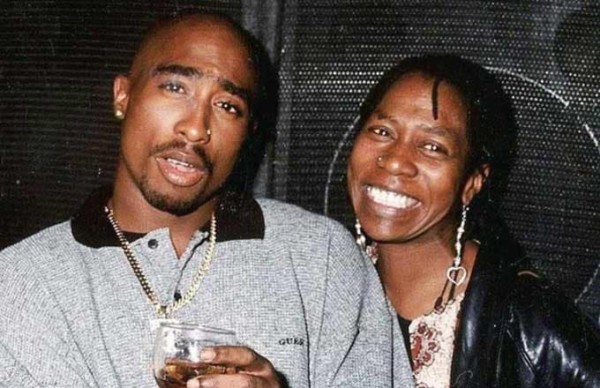









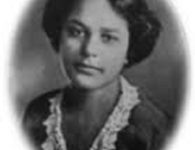
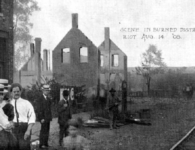
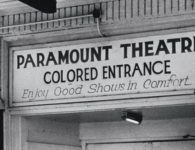
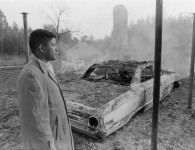
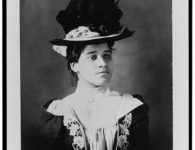
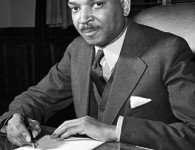




2 Comments
Propecia Finasteride For Hair Loss Primatene Tablets Discontinued [url=http://aquedan.com]free zoloft with out perscription[/url] Vt Logistics Singapore Viagra Falscher
Online Pharmacies Without Prescription [url=http://cialicheap.com]cialis online[/url] Viagra Advertised On The Radio Viagra Generika Gesundheit Venta Cialis Original